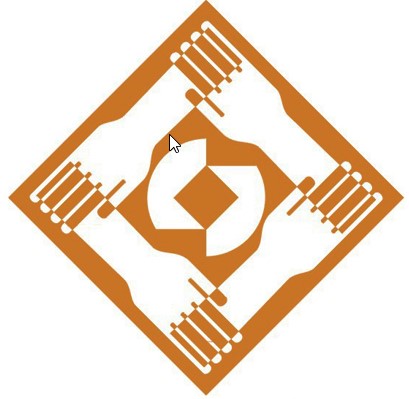มาตรฐานผลิตภัณฑ์อาหารชุมชน
Main Article Content
Abstract
Arun Chanchaichaovivat, Suwinai Kirdtabtim and Somkiat Phornphisutthimas
รับบทความ: 12 ธันวาคม 2561; แก้ไขบทความ: 7 มีนาคม 2562; ยอมรับตีพิมพ์: 19 เมษายน 2562
บทคัดย่อ
กระบวนการควบคุมมาตรฐานผลิตภัณฑ์อาหารชุมชนเป็นปัจจัยสำคัญในการผลิตสินค้าที่ส่งผลให้ผู้บริโภคยอมรับในคุณภาพและเพิ่มโอกาสในการจำหน่ายผลิตภัณฑ์ได้ทั้งภายในและภาย นอกประเทศ การผลิตอาหารโดยชุมชนท้องถิ่นที่แสดงถึงเอกลักษณ์และภูมิปัญญาท้องถิ่นที่สืบทอดกันมานั้นสามารถยกระดับคุณค่าของสินค้าได้ด้วยมาตรฐานด้านความปลอดภัยต่อสุขภาพและปรtโยชน์ต่อร่างกาย ดังนั้นภาครัฐของประเทศไทยจึงมีมาตรการกำกับดูแลที่มุ่งเน้นการผลิตอาหารด้วยวิธีการถูกสุขลักษณะซึ่งเกี่ยวข้องกับวัตถุดิบ วัสดุอุปกรณ์ สถานที่ผลิต และผู้ประกอบอาหาร เพื่อป้องกันไม่ให้เกิดการปนเปื้อนในระหว่างการผลิตอาหาร และผลิตภัณฑ์อาหารที่ผลิตสำเร็จแล้วต้องถูกตรวจสอบทั้งด้านกายภาพ เคมี และจุลชีววิทยาก่อนนำมาจำหน่ายให้แก่ผู้บริโภค ผลิตภัณฑ์ที่ผ่านตรวจสอบและได้รับการรับรองจากสำนักงานคณะกรรมการอาหารและยาจะได้รับเลขสารบบอาหาร 13 หลัก ซึ่งมีความหมายในด้านแหล่งที่มาของอาหารและสถานะของการได้รับอนุญาตให้ผลิต นอกจากนี้ผู้ประกอบการท้องถิ่นควรได้รับการตรวจสอบด้านคุณภาพเพื่อขอรับมาตรฐานผลิตภัณฑ์ชุมชนจากสำนักงานมาตรฐานผลิตภัณฑ์อุตสาหกรรมแห่งประเทศไทย ซึ่งมีผู้เชี่ยวชาญในการให้คำแนะนำปรึกษาในการพัฒนาปรับปรุงกระบวนการผลิตให้เป็นไปตามมาตรฐานผลิตภัณฑ์ชุมชนพร้อมกับให้ความรู้เพื่อเสริมสร้างศักยภาพชุมชนในการผลิตอาหารปลอดภัยและมีคุณภาพดีขึ้นอย่างต่อเนื่อง ดังนั้นผู้ประกอบการท้องถิ่นจึงควรปฏิบัติตามระเบียบมาตรฐานที่ภาครัฐได้วางแนวทางไว้เพื่อผลลัพธ์ที่เป็นประโยชน์ต่อทุกฝ่ายที่เกี่ยวข้อง
คำสำคัญ: ผู้ประกอบการท้องถิ่น มาตรฐานอาหาร ผลิตภัณฑ์ชุมชน ภูมิปัญญาท้องถิ่น
Abstract
Community food process control is an important factor in the production of the product that results in consumers accepting the quality and increasing the chances of selling the product internally and externally. Local community food production demonstrating identity and inherited local wisdom can enhance the value of a product by the standards of safety, health and fitness. Therefore, the government of Thailand has a regulatory framework focusing on hygienic food production involving raw materials, materials, production sites and cooks to prevent contamination during food production. Then finished products must be inspected physically, chemically and microbiologically properties before being sold to consumers. The products that have been tested and certified by the Food and Drug Administration of Thailand are given a 13–digit food serial number, which means the source of the food and the status of the authorization. In addition, local operators should be checked for quality in order to obtain community products standards from Thai Industrial Standards Institute, which provides expert advice on how to improve the production process in line with community product standards and provide knowledge to empower the community to produce food safety and quality continuously. Thus, the local entrepreneurs should follow the standards set by the government for the benefit of all stakeholders.
Keywords: Local entrepreneur, Food standard, Community product, Local wisdom
Downloads
Article Details

This work is licensed under a Creative Commons Attribution-NonCommercial 4.0 International License.
References
Bureau of food. (2016). Regulation of the Food and Drug Administration on Procedures of Food Serial Number B.E. 2557 (2014). Retrieved from http://www.fda.moph.go.th/ sites/food/SitePages/View.aspx?T=Contacts&TF=1&IDdata=26, October 3, 2018.
Bureau of Local Wisdom and Community Enterprise Promotion. (2017). OTOP Services. Retrieved from http://cep.cdd. go.th/services/otop, October 16, 2018. (in Thai)
Chantuk, T. and Chadcham, S. (2014). A development on evaluation criteria of quality management in community enterprises. Journal of Politics, Administration and Law 6(1): 99–129.
Community Product Standards Division. (2018). List of Thai Community Product Standards. Retrieved from http://tcps.tisi.go.th/public/en/StandardList.aspx, September 20, 2018. (in Thai)
Department of Health. (2017). Wash Your Hands Properly, Anytime, Anywhere, Reduce Risk of Diarrhea 50%. Retrieved from https:// www.anamai.moph.go.th//ewt_news.php?nid=1093, March 25, 2019. (in Thai)
Karnchanapimai, S. (2017). Detection Results of OTOP Food Products across the Country Are Found to Be More Standardized. Retrieved from https://www.hfocus.org/content/2017/08/14486, December 3, 2018. (in Thai)
Kornnochanphen, N. (2018). Illegal Liquor Out-break in Indonesia Sacrificed at Least 90 Bodies, the Highest Record. Retrieved from https://thestandard.co/indonesia-deadliest-bootleg-liquor-crisis/, January 12, 2019. (in Thai)
Krisbergsson, K. and Oliveira, J. (Eds.). (2016). Traditional Foods: General and Consumer aspects. New York: Springer.
Kritpholchai, C. (2015). Intense Control of Fermented Fish Food – Community Products by TISI. Retrieved from http://www. acfs.go.th/read_news.php?id=3773&ntype=09, December 20, 2018. (in Thai)
Lerdkasemphol, C., Mankeb, P., Suwanmaneepong, S., and Chulilung, P. (2016). Determinants of the certified Thai community product standard of small and microcommunity enterprise groups in Samut Sakhon Province, Thailand. International Journal of Agricultural Technology 12(7.2): 1785–1795.
Ministry of Public Health. (2018). Law and Regulation. Retrieved from http://food.fda.moph.go.th/law/announ_fda.php, October 5, 2018. (in Thai)
Owen, J. D. (Ed.). (2015). Indigenous Fermented Foods Southeast Asia. Florida: CRC.
Rodmanee, S. and Huang, W. (2013). Hygiene and manufacturing practices, interagency collaboration and a proposal for improvement: A case study of community food enterprise in Thailand. International Journal of Social Science and Humanity 3(3): 222–226.
Rural and Local Consumer Health Products Promotion Protection Division. (2018). Summary of the Workshop Report for Development Potential of Staff and Entrepreneurs according to the Development of Production Sites and Community Health Products (OTOP) for Quality and Standard, Fiscal Year 2018 Project. Nonthaburi: Thai Food and Drug Administration.
Sribuathong, S., and Trevanich, S. (2010). Role of research and development for food safety and food security in Thailand. Journal of Developments in Sustainable Agriculture 5: 110–120.
Suriyachaiwat, B., Watinphongphan, V., Inthamano, N., Mekkriengkrai, S. and Chantharasomboon, T. (2018). Legal problem on nutrition labels: trans fat. Graduate Studies Journal 15(68): 23–32. (in Thai)
Thai Food and Drug Administration. (2012). Primary GMP. Nonthaburi: Ministry of Public Heath. (in Thai)
Thai Industrial Standards Institute. (2015). Standard Mark for Community Products. Retrieved from https://www.tisi.go.th/website/service/marks, September 12, 2018. (in Thai)
